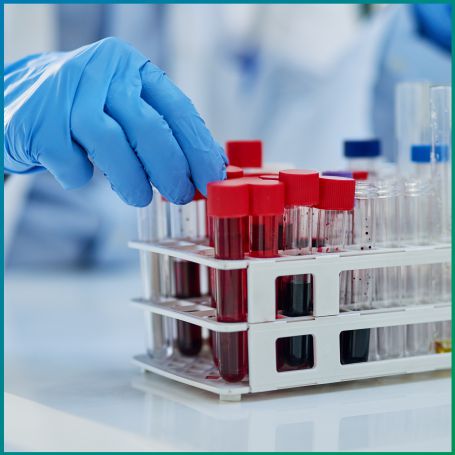
The valproic acid test is a diagnostic blood test designed to measure the concentration of valproic acid in the bloodstream.


Valproic acid, a anticonvulsant and mood-stabilizing drug, is used primarily to treat seizures, bipolar disorder, and migraine headaches. The purpose of this test is to monitor the drug levels to ensure they are effective and within a safe range, avoiding both toxicity and subtherapeutic levels.
1] Therapeutic Monitoring: Regular monitoring of valproic acid levels is essential for adjusting dosages to maintain therapeutic efficacy while preventing adverse effects. The drug's effectiveness and safety are closely linked to its concentration in the blood.
2] Preventing Toxicity: High levels of valproic acid can lead to toxicity, with symptoms including drowsiness, confusion, tremors, and gastrointestinal distress. By monitoring levels, healthcare providers can prevent these adverse effects and ensure patient safety.
3] Adjusting Dosages: The Valproic acid test pune helps in adjusting dosages based on individual patient needs. Factors such as body weight, age, liver function, and drug interactions can affect how valproic acid is metabolized and excreted.
4] Assessing Drug Interactions: Valproic acid can interact with other medications, potentially altering its effectiveness or increasing the risk of side effects. The test helps in evaluating these interactions and making necessary adjustments.
1] Normal Range: The therapeutic range for valproic acid typically falls between 50 to 100 micrograms per milliliter (µg/mL), although this can vary based on individual factors and the condition being treated. Results outside this range may indicate the need for dosage adjustments.
2] Low Levels: If the test shows that valproic acid levels are below the therapeutic range, it may suggest that the dosage is insufficient to control the patient's symptoms effectively. This can lead to breakthrough seizures or inadequate mood stabilization.
3] High Levels: High levels of valproic acid may indicate potential toxicity. Symptoms of high levels include nausea, vomiting, dizziness, and cognitive disturbances. In such cases, the dosage may need to be reduced, or additional interventions may be required.
Diagnopein stands out as the best pathology lab test centre in Pune for conducting the Valproic Acid Test, thanks to its commitment to quality and accuracy. As an NABL-accredited lab, Diagnopein adheres to the highest standards of laboratory practices, ensuring precise and reliable test results. The lab is equipped with advanced technology and operated by highly skilled professionals, making it a trusted choice for therapeutic drug monitoring tests like Valproic Acid. Accurate reports play a crucial role in managing conditions such as epilepsy and bipolar disorder, and Diagnopein’s streamlined processes ensure timely and dependable results. When you prioritize quality healthcare, choosing Diagnopein for your diagnostic needs guarantees exceptional service and peace of mind.
The test itself involves minimal risk, similar to any Valproic Acid blood test. You may experience slight discomfort at the site of the blood draw or minor bruising, but these effects usually subside quickly.
A blood sample is drawn from a vein, typically from your arm. The sample is then analyzed in a laboratory to determine the concentration of valproic acid in your bloodstream.
No fasting is typically required for the Valproic Acid test. However, your doctor may ask you to have the test at a specific time, usually before your next dose, to measure the "trough" level of the drug.
Several factors, including liver function, age, body weight, other medications, and alcohol use, can influence valproic acid levels. Be sure to inform your doctor of any other treatments or lifestyle habits that may impact your test results.